Croatians Prefer Non-carbonated to Carbonated Water, Survey Shows
ZAGREB, 20 June, 2021 - As many as 89.1% of Croatians prefer tap water, 76.7% think that bottled water is not better or healthier than tap water, and 59.9% choose non-carbonated water when shopping, a survey showed.
The survey was carried out by Ja Trgovac magazine and the Hendal market research agency in May on a representative sample of Croatian citizens above the age of 16.
It showed that 44.8% of respondents drink more than five glasses of water on average a day, 37% drink three to four glasses, 12.1% drink two to three glasses and 6.1% drink at least one glass of water a day.
As many as 89.1% prefer tap water and 10.9% more often buy bottled water, either carbonated or non-carbonated, 11.1% drink bottled water every day, 17.7% do so several times a week and 14.3% once a week, 22.3% drink bottled water several times a month, 19% do so several times a year and 15.6% never buy or drink bottled water.
As for the type of bottled water, 59.9% of respondents mostly buy or drink non-carbonated water, 36.3% prefer non-carbonated water and 3.7% like flavoured water.
Asked whether they think that bottled water is healthier or better than tap water, 76.7% of respondents said that it is not better, while 23.3% think that it is.
For more on lifestyle in Croatia, follow TCN's dedicated page.
For more about Croatia, CLICK HERE.
WWF, Union for Mediterranean Call for Better Water Management
ZAGREB, 22 March 2021, 2021 - The World Wide Fund for Nature (WWF), an international organisation for environmental protection, called on Monday, on the occasion of World Water Day, for better water management and protection and preservation of water resources.
Global demand for water grows every year and it is estimated that by 2050 it will grow by up to 55%, mostly due to growing production, the WWF said.
At the same time, almost two-thirds of the global population face water restrictions at least for a month in a year.
Challenges and risks to the availability of water will grow bigger every year if we do not change the way we treat water and understand that it is a limited resource, the WWF Adria said.
Croatia is rich in drinking water, which is why the availability of drinking water is often taken for granted, the organisation said.
For decades water resources have been poorly managed - from pollution with wastewater and waste, construction of small hydropower plants and unsustainable dams to uncontrolled gravel and sand excavation, cutting of forests near rivers and sealing of soil and natural water courses, it said, stressing that there was still time for stopping the crisis and calling on everyone to be a part of the solution.
The Union for the Mediterranean, an organisation bringing together 42 countries of the EU and the Southern and Eastern Mediterranean, including Croatia, warned today that many Mediterranean countries were faced with water shortage, a problem additionally exacerbated by the coronavirus pandemic, in which additional quantities of water are used for hand washing.
The Barcelona-based organisation notes that hand washing due to coronavirus has increased daily water consumption from 9 to 12 litres per household.
The average demand for water in Mediterranean countries has increased by 5% over the past 12 months due to anti-epidemic measures, it noted.
The chair of the Croatian parliament's committee on agriculture, Marijana Petir, too, today issued a message for World Water Day, calling for responsible management of water resources.
To read more news about lifestyle in Croatia, follow TCN's dedicated page.
Croatian Wetland Areas Mark 50th World Wetlands Day
February 2, 2021 – Today is the jubilee 50th World Wetlands Day. Croatia marks this year's theme "Wetlands and Water" in line with epidemiological measures, as many public institutions of Croatian wetland areas organize numerous online and offline activities.
On the occasion of World Wetlands Day, the Ministry of Economy and Sustainable Development has pointed to a growing freshwater shortage crisis that poses a significant threat to humanity and the planet. This year's theme – Wetlands and water – pays special attention to wetlands as a freshwater source.
50 percent of wetlands lost in the last 50 years
Croatia has several wetlands: Nature Parks Kopački Rit, Lonjsko Polje, and Vrana Lake, the Special Reserve Crna Mlaka in Jastrebarsko, and the Lower Neretva River. Croatian wetland areas seek to encourage actions to restore wetlands and stop their loss by marking World Wetlands Day.
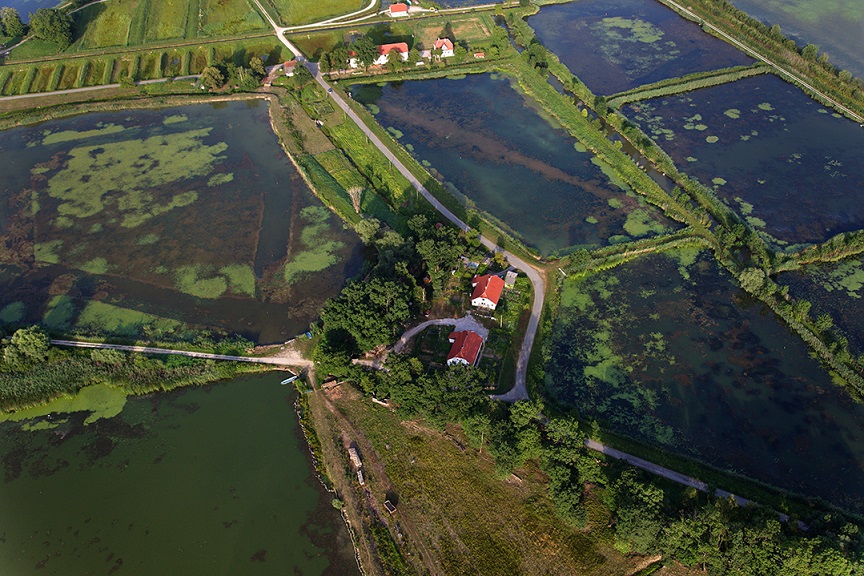
Crna Mlaka in Jastrebarsko / Public Institution Green Ring of the Zagreb County
On this day in 1971, the Convention on Wetlands of International Importance, Especially as Waterfowl Habitat, was signed in the Iranian city of Ramsar. The Convention, known as the Ramsar Convention, obliges each signatory country to the general conservation of wetlands on its territory and provides a framework for international cooperation in protecting and sustainable use of wetlands.
Croatia has been a signatory to the Ramsar Convention since 1991, and the above mentioned Croatian wetland areas are on the Ramsar Convention's list.
As a contribution to implementing the Ramsar Convention in Croatia, three relatively small areas within the Neretva delta were proclaimed as special reserves last year. The places named "Blue Eye and Lake Desna," "Neretva's Estuary," and "Kuti" have preserved, unique, and representative wetland habitats and characteristic species of particular importance for Croatia.
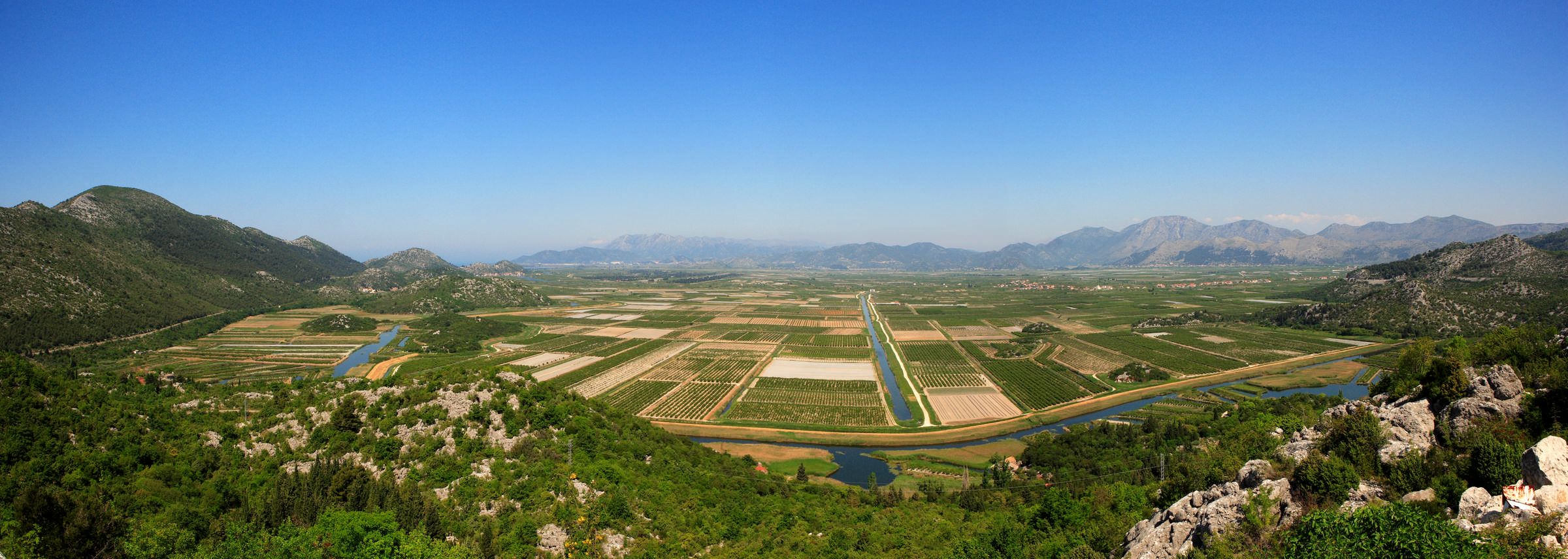
Neretva River / Copyright Romulić and Stojčić
Although wetland habitats represent one of the greatest values of biological and landscape diversity, since more than 40 percent of plant and animal species are associated with them, they are also the most endangered ecosystems in the world. In the last 50 years, 50 percent of all wetlands in the world have been lost.
Wetland areas as the best flood defense
Apart from being wet habitats for numerous plant and animal species, they are also crucial in adapting to climate change. Thus, wetland habitats are extremely important in flood defense, especially in Croatia.
Lowland rivers with moist habitats along their trough, into which they flow during high water levels, represent the best way to defend against floods. This is precisely how the flood defense system in Posavina was built. Thus, high waters of the Sava River flow into the Lonjsko Polje Nature Park floodplains, while Kopački Rit Nature Park "receives" high waters of the Drava and Danube, thereby changing their landscapes.
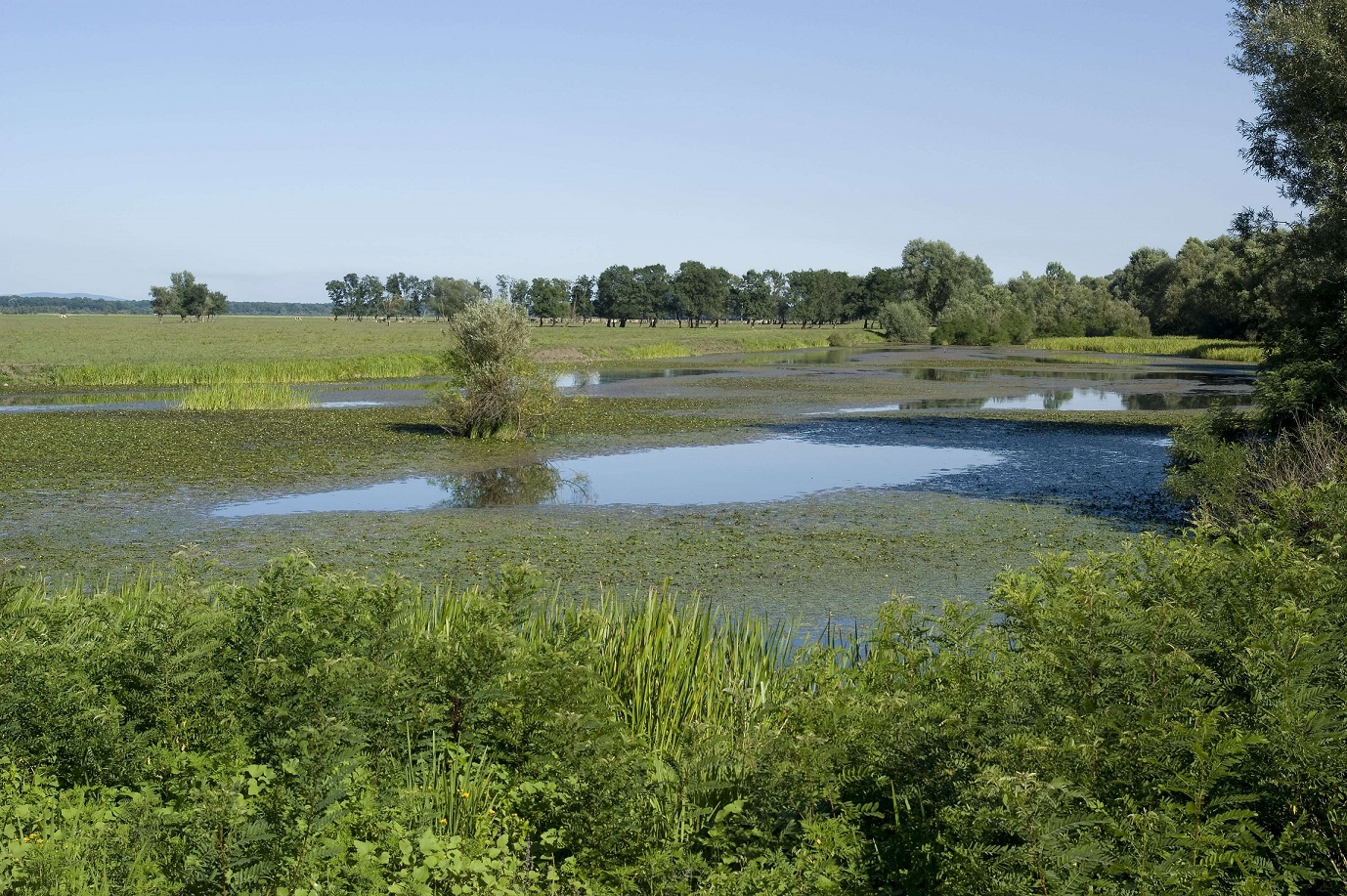
Lonjsko Polje Nature Park
The value of wetland habitats is also related to the restoration of groundwater supplies, the consolidation of shores, the retention of nutrients and sediments, and water purification. On World Wetlands Day, public institutions that manage protected areas in Croatia organize numerous activities.
Due to epidemiological measures, Lonjsko Polje Nature Park will not organize the traditional gathering "Future on the edge of the swamp" this year. However, the importance of water and wetlands will be discussed at a small event at the Public Institution headquarters in Krapje.
As part of this event, Matica Hrvatska's branch from Kutina will review the meetings "Future on the Edge of the Swamp" in the last 20 years. Employees of the Public Institution will participate in a workshop on the construction of roof platforms for white stork nests.
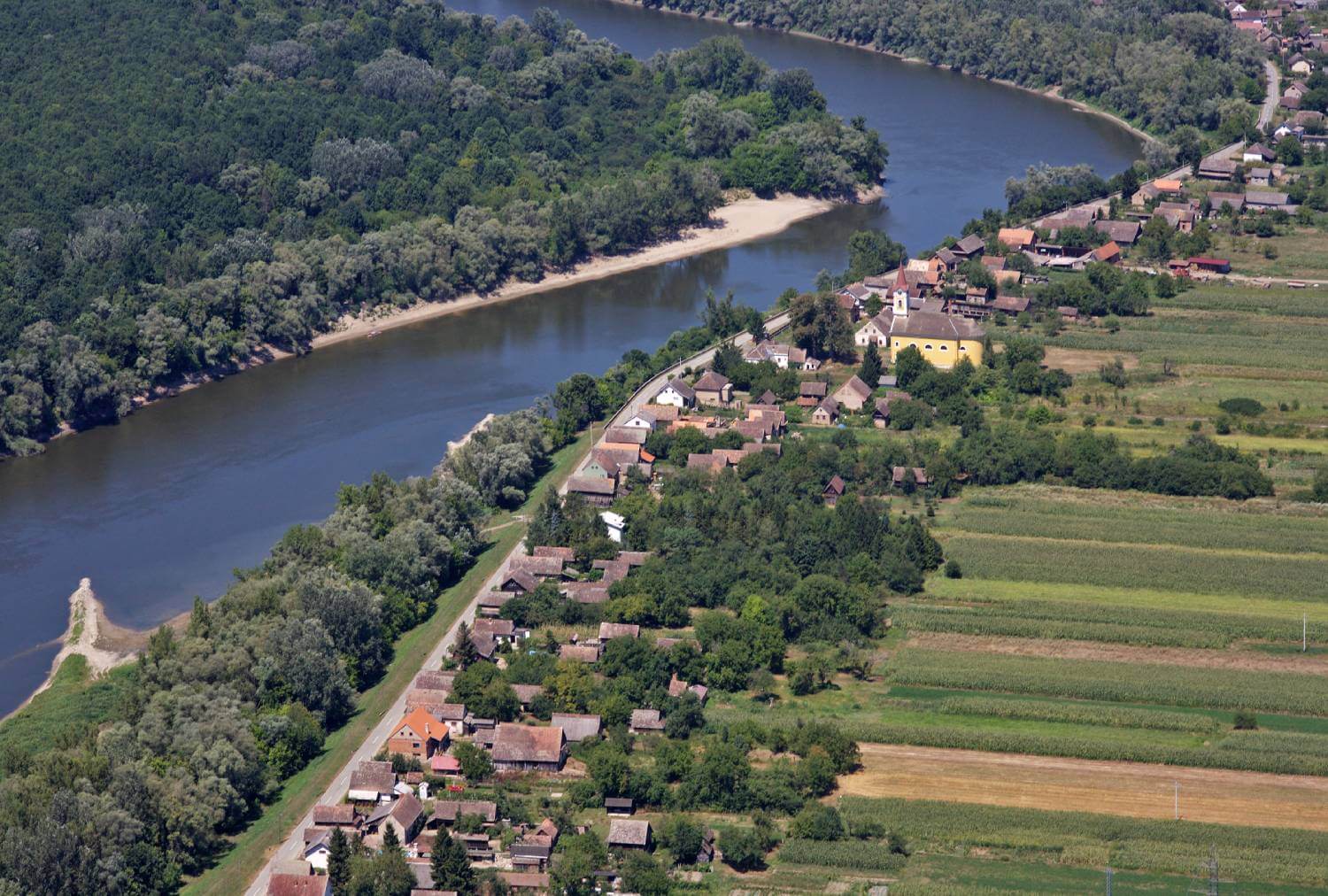
Village of Krapje / Lonjsko Polje Nature Park Boris Krstinić
In Northern Dalmatia, Vrana Lake Nature Park continues cooperation with the School of Applied Arts and Design in Zadar. Students will have virtual and field lectures on the topic of wetlands, their importance, and rich biodiversity, emphasizing birds. Students will create illustrations of different bird species presented in a virtual exhibition on the Park's website.
The traditional 9th "Bird Masquerade" will be organized for primary school students, and students from 1st to 4th grade of local primary schools will make masks of wetland birds. On February 6, free bird watching will be organized for all visitors.
The promotional video "Vrana Lake Nature Park: a place where birds always return" by the author Goran Šafarek will be shown for the first time:
Kopački Rit Nature Park traditionally celebrates World Wetlands Day in cooperation with Elementary School in Bilje. Second-grade students prepared artworks, literary ensembles, and a musical performance on the topic of Kopački Rit and its natural features. A lovely presentation of their work is also available online.
The Public Institution for the Management of Protected Nature Areas of the Dubrovnik-Neretva County conducts education on the importance of wetlands through an LED screen in Metković, where images with short educational texts about wetlands will be shown.
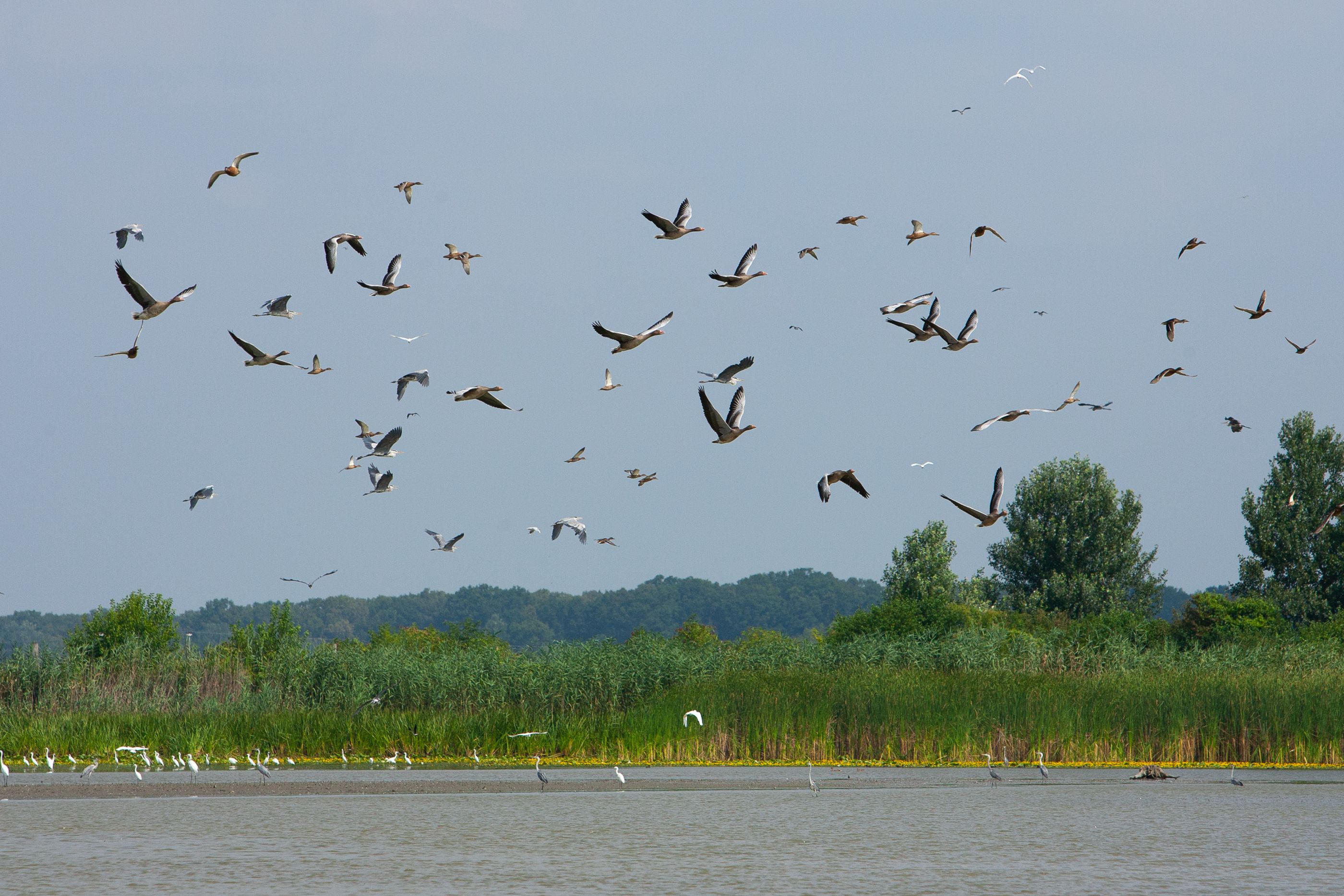
Kopački Rit Nature Park / Copyright Romulić and Stojčić
Croatia Has Highest Volume of Freshwater Resources Per Capita in EU
According to Eurostat, Croatia places first on the list with freshwater resources of 27.330 cubic metres per inhabitant


